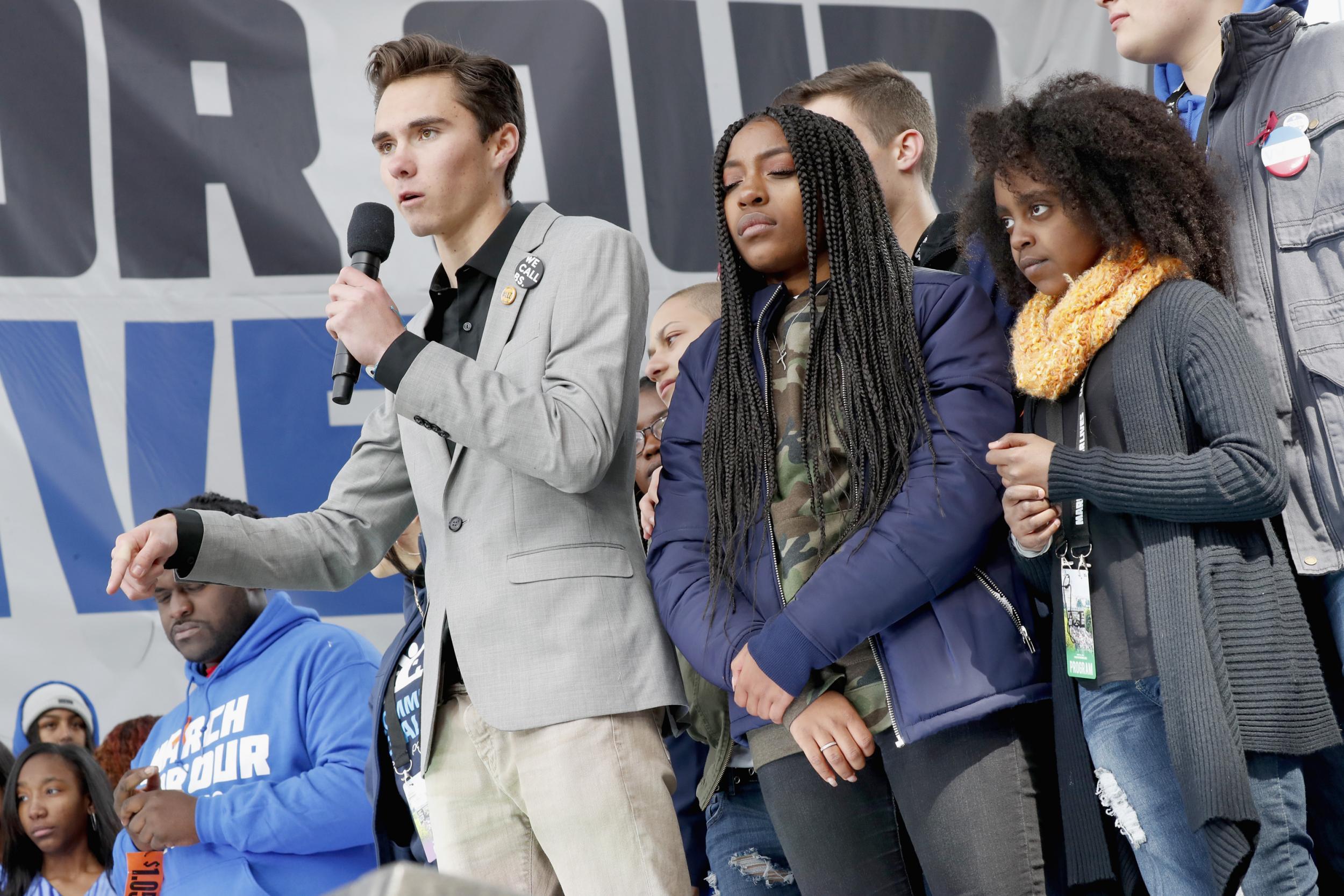‘I’ve never seen protests like this’: Former Columbine principal says Parkland students are leading an unprecedented gun control effort
‘It really doesn't go back to normal; you just have to redefine what normal is,’ Frank DeAngelis says of the 1999 shooting

Nineteen years after two teenage gunmen shocked the US by entering Columbine High School and killing 13 people, the former principal who helped guide his students through the aftermath of that massacre says he sees signs of hope that something might have finally, if improbably, shifted.
Frank DeAngelis, the longtime head of the school who retired four years ago, said that after a seemingly endless procession of school shootings in America since 20 April 1999, the Parkland, Florida student survivors – who have planned student walkouts for the anniversary of the Columbine shooting – may have finally focussed the energies of the gun control movement to push for meaningful change.
If the Columbine shooting was the first major school shooting to shock and permeate American media, he said, the massacre at Marjory Stoneman Douglas High may prove to be the breaking point.
“The media brought the Columbine shooting into the living rooms of the public. I know when I’m out presenting, people will come up to me and say to me: ‘I remember where I was when Columbine happened,’” DeAngelis told The Independent.
“To me, that is, like, I know where I was when JFK was assassinated. I know where I was when the Challenger exploded.”
DeAngelis, who retired from his job after he handed a diploma to every single graduating student who was in the school system on the day of the Columbine shooting, said that the conversation is different today than it was 19 years ago.

While Columbine was one of the most covered mass shootings in American history at the time, media focused more on what may have pushed the shooters to their actions, and less on the ability of those teens to access the firearms they used to murder their classmates.
But, now, after a regular drip-drip of mass shootings has added thousands to the pail of the dead, the Parkland students have managed to push a national dialogue around gun control, while simultaneously telling their followers on Twitter the stories of their friends they saw murdered on Valentines Day – not the story of the shooter who took their lives.
“The protests have been going on. I’ve never seen protests like this,” DeAgnelis said, noting that the driving force behind the protests is high school students with a fresh vision for change.
“I hope that these kids who are out there speaking now, and have the media coverage, when it goes away – and it will – I’m hoping that these students continue to speak even if there are no cameras there, and even if there aren’t reporters there.”
In the immediate aftermath of the Valentine's Day shooting in Florida, the students and broader Parkland community mobilised to push for gun control measures they say could have saved the lives of the 17 people who were murdered just before the end of the school day.
The day after the shooting, a vigil for the dead erupted with chants of “no more guns”, even as national pundits made the familiar call to not politicise a mass gun violence episode.
The students, three days later, led a massive rally in nearby Fort Lauderdale to protest gun violence, call on politicians to reform gun restrictions, and to denounce anyone who takes money from America’s powerful gun lobby, the National Rifle Association (NRA).
Since then, the students have helped organise two national school walkouts – one on the month anniversary of the Parkland shooting, the second on the anniversary of the Columbine shooting on Friday – and the massive March for our Lives rally in Washington and communities across the country on 24 March.
As the March for our Lives rally came to an end, organisers promised that was just the start. They promised to keep holding school walk outs, and emphasised that many of the students involved across the country are about to be of voting age.
They have encouraged voter registration drives in their attempt to add some weight to the central threat and strategy: The midterms are coming up soon, and any politician who is soft on gun control better be scared.

DeAngelis commended their understanding that the polls are one of the best ways to see meaningful change.
“The way they make a difference is to get people registered to vote, go to the polls, and learn about the candidates,” DeAngelis said. “I think that’s the most important thing.”
But DeAngelis knows as well as anyone that it will not be easy, and finding peace with tragedies like Parkland is no quick feat.
Nineteen years ago, he went to work just like he did any other day, not knowing his life would be altered forever. After the shooting broke out, DeAngelis said he encountered one of the gunmen in the halls. Shots were being fired.
DeAngelis – just like teachers at Parkland – rushed to secure students leaving a physical education class back into a locker room to safety.
He has 19 years’ worth of experience to show that the major media attention the Parkland students have received over the past several months will eventually fade, and those affected by Parkland will still be working to change their lives and the lives of everyone across America when it does.
“It’s a marathon, not a sprint,” he said of the path ahead of the Parkland community, and the activists around the country who are seeking to change the status quo surrounding guns in America.
“It really doesn’t go back to normal. You just have to redefine what normal is.”
Join our commenting forum
Join thought-provoking conversations, follow other Independent readers and see their replies
Comments
Bookmark popover
Removed from bookmarks